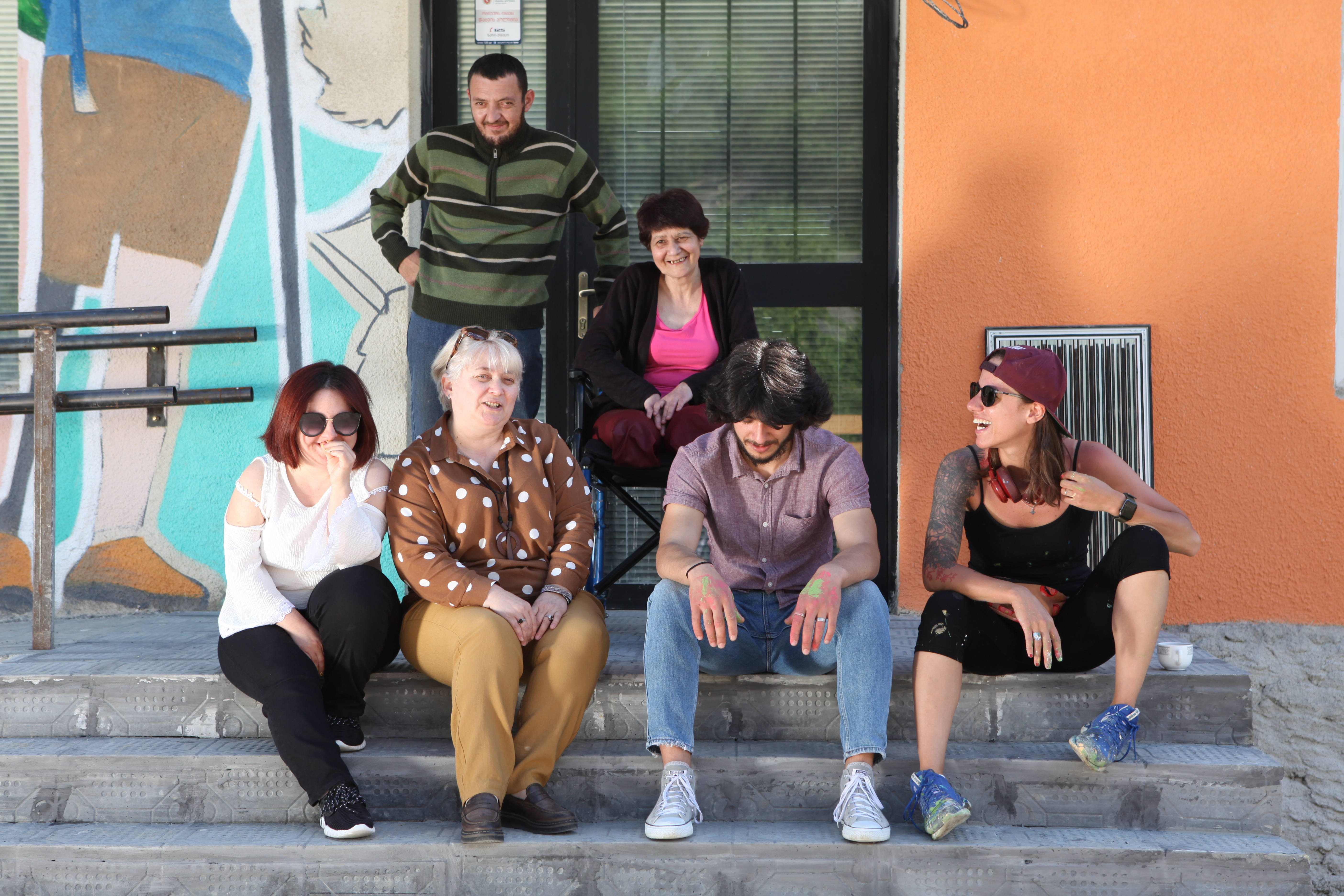Ambrolauri Social Inclusion Centre opens doors for people with disabilities and the local community
Creating Space for Everyone
May 24, 2022

Ambrolauri Social Inclusion Center
Nona Gudulidze, a serene, a fifty-year-old nurse from Georgia’s mountainous Racha region, never imagined that she would be unable to walk or even find work. Her life, however, changed forever when a 2020 car accident left her in a wheelchair.
The lack of accessible public infrastructure and disability-friendly jobs left her “sitting at a window and looking at life passing by,” she recalls. Now, a new multifunctional centre of social inclusion is about to open in her hometown; Nona and dozens of other people with disabilities will gain a much-awaited chance to reclaim their professional and social lives.
“I cannot tell you how happy I am about joining the staff at the centre,” says Nona, who is eagerly taking up duties as the facility’s new librarian. “Finding a job these days is a challenge for everyone, let alone a person with a disability. But I get to feel accomplished again!” she said proudly.
The Centre for Social Inclusion in Ambrolauri is the first institution in Georgia to provide adult persons with disabilities with space for social activities, professional skills development and equal employment opportunities. It will include a specialized gym, a library, a vocational training classroom and a combined print shop and bookbinder. These will provide much-needed jobs, training, counselling, physiotherapy and inclusive outdoor space for people with disabilities. Beyond offering vital services for up to 50 persons with special needs from Ambrolauri and nearby villages, the centre will also serve as a social space for the elderly and local youth.
The centre is already adding verve to the entire neighbourhood. The dilapidated walls of a former municipal building gave way to a renovated and revitalized space. Thanks to the renowned Georgian social artist Musya Keburia, the building’s formerly grim façade is now an exquisite mural, turning a shady building into a local landmark. “When people see the centre, they should have a sense of belonging and unity,” says Musya. “I hope this mural will meet the needs and feelings of every person using this space.”
Initiated by UNDP with support from the United Nations Fund for Sustainable Development Goals (SDG Fund), this life-changing enterprise is being developed in partnership with the Ambrolauri City Hall and a local community organization “Together for Real Change”.
The initiative is already attracting local and international supporters who are enthusiastic about contributing to its success. The Government of Bulgaria has already made additional funding available for equipping the centre with adapted devices and supporting the further development of inclusive services.
According to Nana Lomadze, head of Together for Real Change, the social inclusion centre is a game-changer that will set an example for Georgia on how inclusive services should work. “The model of inclusive environment suggested by UNDP combines a fully adapted space with bespoke services designed to meet the needs of individuals with physical and mental disabilities,” says Lomadze. “At the core of our work, we place the basic principle of the UN Convention on the Rights of Persons with Disabilities: nothing about us without us.”
In Georgia, some 125,000 people — 3.3 percent of the population — are registered as persons with disabilities. The actual number is likely much higher because disability affects around 16 percent of the population in most countries.
Despite the progress Georgia has made in recent years, persons with disabilities remain one of the most excluded, vulnerable and marginalized groups in society; they face physical barriers and stigma in virtually every aspect of life.
However, things are changing for the better. UNDP research revealed an increasing consensus among Georgians that disability should not be a barrier to enjoying basic human rights or participating in community life; Georgians are becoming more accepting of persons with physical disabilities. Two-thirds of survey respondents agreed that people with physical disabilities can achieve as much success in learning as other members of society, and half of the respondents said they believe that people with physical disabilities can live independently. This acceptance, however, drops dramatically for persons with mental or intellectual disabilities, showing that there is still a lot of work to be done to ensure that all persons with disabilities enjoy equal access to education, employment and community life.
Deputy Head of UNDP, Anna Chernyshova recently discussed systemic interventions that would improve the livelihoods of people with disabilities, stressing the importance of embedding pilot initiatives like the Ambrolauri Centre into the overall state response.
“We have seen big changes in public attitudes over the last decade,” said Chernyshova. “Now, among other findings, our research reveals that Georgians expect more support for people with disabilities from the government, especially in providing inclusive education and creating equal job opportunities. In this context, the Ambrolauri centre is a benchmark in this quest.”
Background Information:
For over a decade, UNDP has worked in partnership with the Government of Georgia, the European Union, Sweden, UN agencies, and other national and international actors to support Georgia’s efforts to protect the rights of people with disabilities and to build a more inclusive society.
In early 2020, six UN agencies launched a US$2 million joint programme in Georgia to improve social protection for persons with disabilities. As the pandemic (and related responses) created new threats, this programme effectively adapted to address the specific challenges that COVID-19 poses for persons with disabilities.

 Locations
Locations






